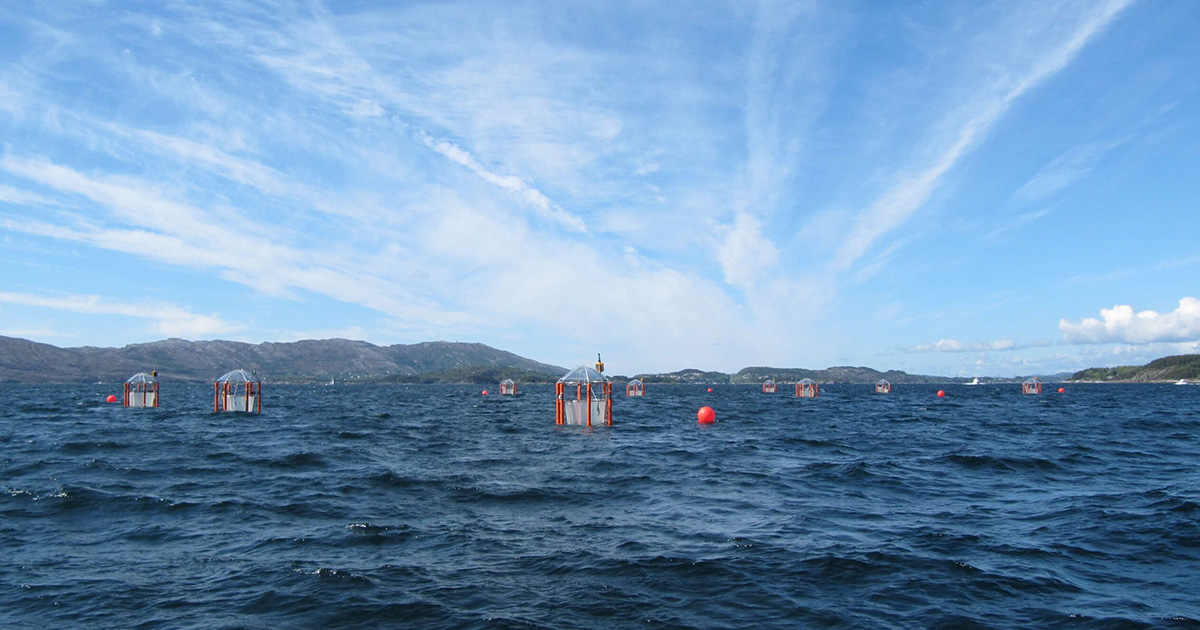Dalhousie University has received nearly CAD$15 million from the Carbon to Sea Initiative to lead the Ocean Alk-align research program, a global five-year project that will bring researchers together from around the world to study ocean alkalinity enhancement—an approach for atmospheric carbon removal that aims to mitigate climate change.
The process of alkalinity enhancement is compared to adding an antacid to the ocean, the kind we take for heartburn or when our stomachs are upset. Over the past 200 years, the burning of fossil fuels has increased ocean acidification and reduced its ability to absorb carbon dioxide (CO2) from the atmosphere. Through targeted enhancement of ocean alkalinity, Dalhousie oceanographer Dr. Katja Fennel and her colleagues will study if they can reverse ocean acidification to make the ocean more receptive to CO2 absorption.
The Dalhousie-led Ocean Alk-align project is supported by the Carbon to Sea Initiative, a non-profit program funded by philanthropic foundations in the United States, Canada, and Europe. Carbon to Sea seeks to assess the conditions under which ocean alkalinity enhancement can become a safe, cost-effective, and scalable method for atmospheric CO2 removal. The $15-million CAD grant to Alk-align is the largest funding commitment of the initiative to date.
"Currently, ocean alkalinity enhancement is not a mature technology and its environmental impacts have not been assessed in the field,” said Dr. Fennel, who is the Lead Principal Investigator of the Ocean Alk-align research program. “Our research consortium will tackle the three most pressing research issues: the efficiency and permanence of CO2 removal, its environmental risks and potential benefits, and the monitoring and verification of CO2 uptake.”
Dr. Fennel notes it is now widely accepted that global efforts to reduce CO2 emissions are not enough to veer us off a course toward catastrophic climate change. The United Nations’ Intergovernmental Panel on Climate Change says to meet these targets, the world needs to remove 10 giga tonnes (equivalent to one billion tonnes) of CO2 from the atmosphere per year by the middle of the century, and 20 giga tonnes per year by the end of the century. Ocean carbon alkalinity could be a key to meeting these targets.
“If we’re going to avoid the worst impacts of climate change, we need to aggressively reduce emissions and remove carbon from the atmosphere,” said Mike Schroepfer, Board Chair of Carbon to Sea and co-founder of Additional Ventures, a purpose-driven organization that started and spun-out Carbon to Sea.
“Scientists agree that ocean alkalinity enhancement has enormous potential to permanently remove and store carbon and more funding for research is needed. We are here to respond to the call for research funding and answer basic scientific questions about the safety and efficacy of various approaches to ocean alkalinity enhancement. If we find that ocean alkalinity enhancement can be applied at scale, we can unlock one of the most efficient, cost-effective approaches to carbon dioxide removal for humanity. I’m grateful to the whole network of funders, researchers, partners, and the amazing team at Carbon to Sea for their bold commitment to pursue this work."
As chief principal investigator, Dr. Fennel will facilitate collaborations between Dalhousie and a global team from some of the world’s foremost centers of ocean research, including GEOMAR Helmholtz Center for Ocean Research Kiel and Hamburg University in Germany, and University of Tasmania and Southern Cross University in Australia.
“As a global leader in ocean science, Dalhousie is perfectly positioned to take the lead in this emerging area in the fight against climate change,” said Dr. Alice Aiken, Dalhousie’s Vice President Research and Innovation. “Under Dr. Katja Fennel’s direction, this research program will play a key role in advancing the science of ocean-based carbon removal. It’s a significant opportunity and it’s our responsibility to the world.”
At the end of April, Dalhousie was also announced the recipient of a $154 million grant from the Government of Canada to help fund the Transforming Climate Action research program to study the ocean’s central role in climate change. One of the three major themes of the program is focused on mitigation strategies and ocean-based CO2 removal in particular. Collaboration between the Ocean Alk-align and Transforming Climate Action research programs has the potential to enhance and substantiate global networks and data sharing with possibilities to significantly magnify impact.
“The math is relatively simple—we need to pair emissions reduction with environmentally responsible carbon dioxide removal solutions. My interest in ocean alkalinity enhancement is rooted in a deep love of the ocean, a recognition that climate change is a catastrophe for marine ecosystems, and the belief that our ocean can be a part of the solution,” said Dr. Antonius Gagern, Executive Director of Carbon to Sea. “The growing scientific community working on ocean alkalinity enhancement includes the best minds across a range of disciplines, from biogeochemistry to ocean engineering, and is focused on systematically testing this hypothesis.”
Dr. Fennel says it’s essential that researchers outside of the private sector play a central role in determining the future of ocean alkalinity enhancement, noting that an objective approach is required to ensure it is done correctly, if at all.
“It is of utmost importance that these issues are investigated by scientists who have no financial interests in the research outcomes and are driven solely by the desire to ensure safe implementation if, and only if, ocean alkalinity proves to be effective at removing CO2,” said Dr. Fennel. “This must happen before it is implemented and scaled up.”



